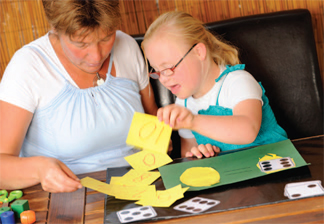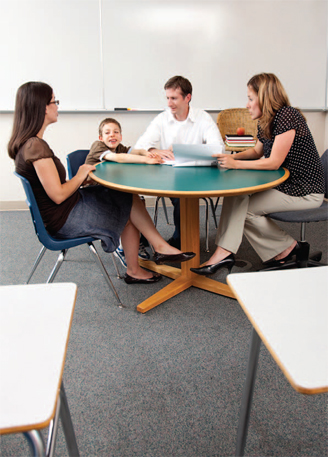Assessment
What is assessment? + −
Printable PDF version

Assessment in school is a process of gathering information.
- Assessment can help teachers determine what their students know and can do. This information helps teachers decide what to teach.
- Assessment can help teachers determine how their students learn. This information helps teachers decide how to teach.
- observations
- work samples
- portfolios
- checklists
- student demonstrations and performances
- learning logs
- many other methods
Who will assess my child in school? + −
Classroom-based assessment:
- is conducted by classroom teachers
- helps teachers become aware of their student's knowledge and skills
- helps teachers plan and adjust instruction
- involves all students
Student-specific assessment
- occurs when a student is having difficulty and the classroom teacher is unsure why; it is the principal's responsibility to ensure that student-specific assessment occurs, as required
- adds to the information the classroom teacher has gathered
- may be conducted by a resource teacher, school counsellor, or another teacher who works in the school
- helps the in-school team determine the student's unique strengths and needs and
- helps them develop an educational plan
Specialized assessment
- occurs when a student continues to have difficulty even after student-specific assessment and planning has occurred; it is the principal's responsibility to ensure that specialized assessment occurs, as required
- must be conducted by a qualified practitioner; this may be a school clinician, such as a speech-language pathologist, psychologist, occupational therapist, physiotherapist, or reading clinician, or someone else who will work with the in-school team to gather more information and revise the student's educational plan
- requires a parent's consent
What should I do if I'm concerned about my child's performance or progress in school? + −
 Start by talking to your child's teacher. If your child has an in-school support team, talk to the case manager. Be specific. It may be helpful to prepare a list of skills your child is having difficulty with and your observations of your child's performance at home and in the community. Discuss whether the same performance has been demonstrated at school. Together you, your child's teacher, and other members of your child's team can decide if more assessment information may be required.
Start by talking to your child's teacher. If your child has an in-school support team, talk to the case manager. Be specific. It may be helpful to prepare a list of skills your child is having difficulty with and your observations of your child's performance at home and in the community. Discuss whether the same performance has been demonstrated at school. Together you, your child's teacher, and other members of your child's team can decide if more assessment information may be required.
Do I need to give permission for my child to be assessed in school? + −
Teachers are required, under The Public Schools Act, to conduct classroom-based and student-specific assessments. The information gathered, and what it means, should be shared with parents. This helps everyone understand and support the student.
Parents must be informed by the school before their child is referred for a specialized assessment. This assessment cannot take place without the parent's consent. If your child's school suggests a specialized assessment, make sure you ask questions and discuss any concerns you have with your child's teachers. It is important to understand the reason for the referral and what the assessment will involve. All assessments provide information to help educators provide the most appropriate educational programming possible for your child.
What does a specialized assessment involve? + −
The purpose of a specialized assessment is to gather more information to help with a student's educational programming. The person conducting the specialized assessment will decide how to best gather that information, and may:
- ask you questions about your child and his or her development
- observe your child in class or elsewhere in the school
- gather information from teachers
- read reports in your child's pupil file
- administer specialized tests
For more information
- Contact your child's teacher if you have general questions about assessment or specific questions about your child's performance or achievement.
- Appropriate Educational Programming Regulation 155/2005– The assessment section of this regulation provides more information about student-specific and specialized assessments. The regulations are available online at web2.gov.mb.ca/laws/regs/current/_pdf-regs.php?reg=155/2005
- Manitoba Education and Advanced Learning consultants can provide information about assessment for students with exceptional needs.
Manitoba Education and Advanced Learning
Student Services Unit
Winnipeg: 204-945-7912
Manitoba toll free: 1-800-282-8069 ext. 7912

